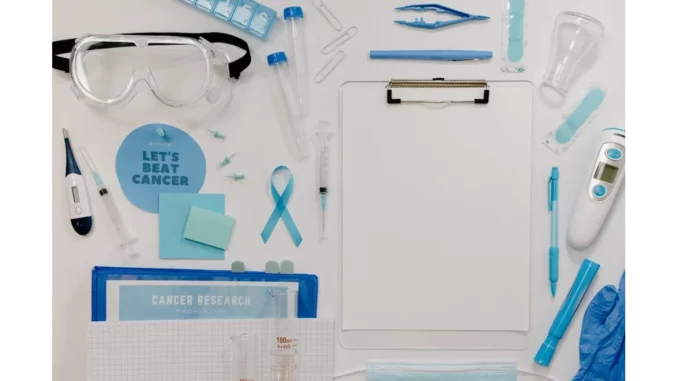
In the midst of a lively oncology conference, I had the opportunity to converse with Dr. Amanda Reyes, a distinguished oncologist with over twenty years of experience in cancer research and treatment. Her composed manner and insightful observations provided a valuable glimpse into the swiftly evolving world of cancer therapies, particularly focusing on the promising developments in targeted treatments and immunotherapies.
Dr. Reyes began by reflecting on her early years in oncology, a period when treatment options were largely confined to chemotherapy and radiation. “Back then,” she recalled, “our approach to cancer treatment was quite indiscriminate. The side effects were significant, and while we could occasionally slow disease progression, this often came at the cost of patients’ quality of life.” Her recollections underscore the dramatic transformation in cancer treatment methodologies over the years.
Today, the landscape of oncology has been transformed by the advent of targeted treatments and immunotherapies, revolutionising how oncologists approach cancer diagnosis and treatment. “These therapies,” Dr. Reyes elucidated, “are akin to precision-guided missiles. They enable us to focus on specific genetic markers within cancer cells, allowing for a more effective assault on the disease with fewer adverse effects.” This shift towards precision medicine is a testament to the strides made in understanding cancer at a molecular level. By pinpointing the genetic mutations driving an individual’s cancer, treatments can be customised to attack those specific abnormalities, enhancing efficacy and minimising harm to healthy cells.
The conversation naturally progressed to immunotherapies, another burgeoning frontier in cancer treatment. “Immunotherapy is remarkable because it utilises the body’s own immune system to combat cancer,” Dr. Reyes remarked with palpable enthusiasm. “By augmenting or reactivating the immune response against cancer cells, we are witnessing extraordinary outcomes, even in cancers once deemed untreatable.” She recounted a compelling case of a patient with metastatic melanoma, a type of skin cancer that had widely spread. “This patient had exhausted all conventional options,” she explained. “We initiated an immunotherapy regimen, and within months, there was a significant reduction in tumour size. It’s instances like these that highlight the transformative potential of these therapies.”
However, Dr. Reyes also candidly acknowledged the existing challenges. “One of the primary obstacles is accessibility,” she noted. “While these treatments are effective, they can be prohibitively expensive. It’s imperative that we strive to make them more affordable and accessible to a wider patient demographic.” The discussion also highlighted the critical need for ongoing research and clinical trials. “Cancer is an ever-evolving target,” Dr. Reyes emphasised. “As our comprehension of the genetic foundations of various cancers advances, we can develop even more sophisticated therapies. This necessitates continuous investment in research and a steadfast commitment to innovation.”
In addition to the scientific and logistical challenges, Dr. Reyes underscored the significance of patient education and engagement in treatment decisions. “Patients today are more informed and involved than ever before,” she observed. “They seek to understand their options and be actively involved in the decision-making process. This is a positive development, as it empowers patients and promotes a collaborative approach to care.” By fostering an environment where patients are partners in their care journey, the medical community can enhance treatment outcomes and patient satisfaction.
As our discussion drew to a close, Dr. Reyes expressed her optimism about the future of oncology. “We stand at a pivotal juncture,” she concluded. “The pace of discovery is accelerating, and with it, our capacity to offer more personalised, effective treatments. The aspiration is that one day, cancer will become a manageable condition rather than a life-threatening illness.” Her words resonate with hope and promise, reflecting the relentless pursuit of progress in the field.
Leaving the interview, I was deeply moved by the profound impact these emerging trends in oncology are having on patient care. The shift towards therapies that target specific genetic markers is not merely a scientific triumph; it represents the remarkable advancements being made in the battle against cancer. As we continue to explore the boundaries of what is possible, the future appears increasingly promising for patients and their families, offering a glimmer of hope in the ongoing fight against this formidable adversary.


Be the first to comment